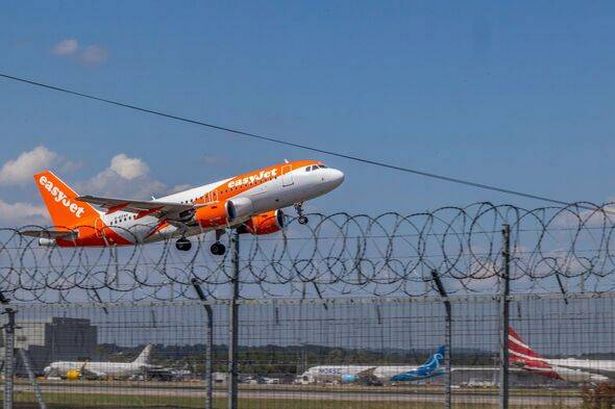EasyJet flight EZY8556, en route from Antalya, Turkey, to Gatwick Airport, London, on Friday night, was forced to make an unscheduled landing in Bari, Italy, following a serious security incident involving a disruptive passenger. The individual reportedly exhibited aggressive behavior and made explicit threats to stab members of the cabin crew, prompting the pilot to divert the aircraft to ensure the safety of all those on board. This incident highlights the ongoing challenges airlines face in managing disruptive passenger behavior and underscores the importance of robust security protocols to mitigate potential threats in the air.
The diversion of EZY8556 caused significant disruption for the remaining passengers, who were unexpectedly stranded in Bari. While EasyJet made arrangements for their onward journey to Gatwick, the incident undoubtedly resulted in delays, inconvenience, and anxiety for those affected. The airline has expressed regret for the disruption caused to its passengers and commended the prompt and professional actions of its crew in handling the difficult situation. This incident serves as a reminder of the potential for unforeseen circumstances to disrupt air travel and the crucial role of airline staff in maintaining safety and security.
Upon landing in Bari, Italian authorities promptly apprehended the disruptive passenger. The individual is now subject to investigation and potential legal action for their alleged threats and unruly behavior. This incident emphasizes the serious legal consequences that can arise from disruptive actions on board an aircraft, sending a clear message that such behavior will not be tolerated. The swift response by Italian authorities further demonstrates the collaborative efforts between international law enforcement agencies in addressing aviation security threats.
This incident raises important questions about the effectiveness of pre-flight security screenings and the potential need for enhanced measures to prevent individuals with aggressive tendencies from boarding aircraft. While existing security procedures are designed to detect and prevent the carriage of prohibited items, they may not always be sufficient to identify individuals who pose a behavioral threat. Airlines and security agencies may need to consider further measures, such as improved passenger screening protocols or enhanced training for cabin crew in identifying and managing disruptive behavior, to address this ongoing challenge.
The incident involving EZY8556 also underscores the importance of clear communication and effective crisis management protocols within the airline industry. EasyJet’s response, which included arranging alternative transportation for the stranded passengers and providing updates on the situation, is crucial in mitigating the negative impact of such incidents. Transparent communication with affected passengers not only helps to manage their expectations but also fosters trust and confidence in the airline’s ability to handle unforeseen circumstances. This incident highlights the necessity for airlines to have robust crisis management plans in place to address disruptive passenger incidents and minimize disruption to their operations.
Furthermore, this event contributes to the ongoing discussion surrounding the mental health of passengers and the need for increased support and resources within the aviation industry. While the specific motivations behind the passenger’s behavior are unknown, the incident highlights the potential for mental health issues to manifest in disruptive or threatening behavior during air travel. Airlines may need to consider implementing further measures, such as training for cabin crew to recognize and respond to passengers exhibiting signs of mental distress, and providing access to mental health resources for both passengers and crew. This incident underscores the importance of a compassionate and proactive approach to addressing mental health concerns within the aviation sector to ensure the safety and well-being of all those involved.














